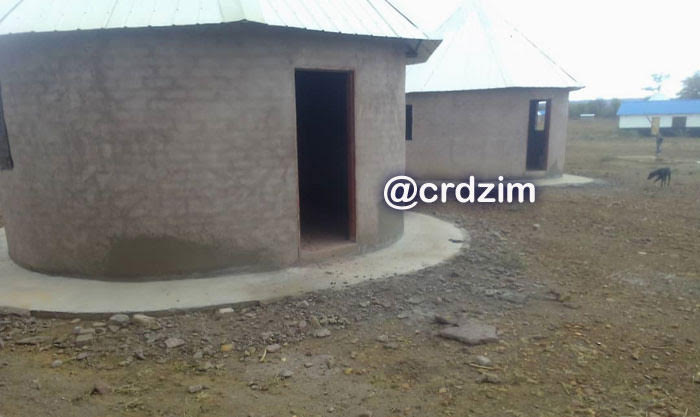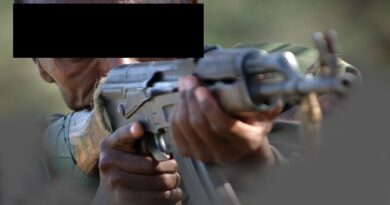CRD piles pressure on Mnangagwa over forced relocations in Manhize
By Staff Writer
Mutare based civic society organisation, Centre for Research and Development (CRD) is piling pressure on President Mnangagwa’s adminstration to halt forced relocations in Manhize at the behest of Chinese firm Dinson.
In a fresh statement released yesterday, CRD said government’s failure to protect communities affected by the Dinson Iron and Steel Company (DISCO) project in Manhize is resulting in grave and avoidable human rights violations.
In the past week, Dinson has intensified efforts to forcibly relocate the remaining 18 families in Mushenjere village to Sable farm, even as heavy rains begin and the relocation site remains unprepared.
The forced removals are taking place without water, farmland, or social services, exposing villagers to hunger and extreme vulnerability.
CRD notes with concern that the relocation MOUs signed in November 2024, which villagers say were signed under duress, did not spell out Dinson’s obligations to prepare Sable farm.
The organisation in a latest statement said:
“The agreements did not clarify whether government or Dinson was responsible for providing essential services. This lack of clarity has allowed both parties to evade accountability, leaving families caught between neglect and coercion.
“CRD therefore warns the Government, as the guarantor and protector of citizens, that it is in breach of its constitutional and international duties by standing by while forced relocations proceed. Sections 44, 51, 71, 73, and 81 of the Constitution oblige the state to protect the rights, dignity, and property of its citizens.”
The Government’s failure to intervene also violates the United Nations Guiding Principles on Business and Human Rights, which require states to prevent corporate abuses and protect communities, particularly indigenous and rural populations, from exploitation by business enterprises.
CRD warns that by allowing Dinson’s actions, government was enabling repeated violations seen in earlier relocations at Singleton and Rusununguko.
A recent field visit conducted by CRD to both Mushenjere Village and Sable Farm to assess the current situation of the families affected by the Dinson Iron and Steel mining reveals distressing experiences.
The relocation area has no school or Early Childhood Development (ECD) structure.
Children currently walk about three kilometres to Kwaedza Primary School, while ECD pupils have stopped going to school.
There is also no dip tank for community livestock, no electricity for new houses, and no clinic for relocated families.
According to families interviewed, Dinson has also stopped paying food allowances, leaving both relocated and waiting families hungry.
The community is also grieving the loss of graveyards of their loved ones, which are now enclosed within Dinson’s durawall.
Families claimed that they are no longer allowed to access these graves for cultural rituals, causing deep emotional and cultural distress.
Some fear that relocation will separate them permanently from the graves of their loved ones, which may be vandalised or neglected.
In Mushenjere Village, CRD observed deep fear and anger among inhabitants over divide-and-rule tactics employed by Dinson. They accused Dinson of working behind Village Head Eria Jemwa to pressure families to move despite the obvious lack of readiness at the relocation site.
Families reported that Jemwa recently came to the village, accompanied by two lorries to ferry villagers to the relocation site. Villagers resisted the move, further creating tension and mistrust in the community.
At the same time, living conditions in Mushenjere have deteriorated. Families remain stranded on land already taken over by mining developments, and roads continue to cut through their village. Livelihoods have collapsed.
Recent heavy rains have worsened the situation.
Several huts have collapsed or have been badly damaged by storms.
Many families have not been maintaining these traditional huts, knowing they were due for relocation.
This has left dozens of households living in unsafe, leaking shelters as the rain intensifies.
Scores of women interviewed by CRD indicated that they are now caught in a double tragedy, where their original village is no longer habitable, yet the relocation site at Sable Farm remains unprepared for settlement.
“They keep telling us to go and look after our houses before thieves steal our things. But is that our responsibility? Why can’t Dinson meet us all? Why are they hiding behind Jemwa? Maybe they bought him that car to use him against us,” said one woman.
Others spoke about the heartbreak of leaving behind ancestral graves.
“Our graves are now inside the durawall. We are ordered to go without them, and no one says what will happen. Where we are going, there is no grazing land for our cattle, just a desert.”
A woman with a disability added:
“I am being forced to go, but how will I live there? I have no money, no food, no help. What will I do?”
“Our old homes are falling, our new homes are leaking, and our land is gone,” she summed up.
At Sable Farm, where four families have already been moved, conditions are equally dire. The relocated families expressed deep frustration and despair, saying they have been “dumped and forgotten.”
Narrating his ordeal, 86-year-old Tapfumaneyi Mugoni pointed out that the living conditions at Mushenjere forced him to relocate.
Heavy mining activities had covered the village in dust and toxic fumes, and graders had destroyed the fields he had cultivated for decades.
“I left because the air was no longer fit to breathe, and graders tore up my farming land. But here, there is nothing good. The water is contaminated because the borehole was drilled below the toilets. I can’t walk two kilometres to fetch water from Dinson’s tap. I’m 86 years old. There is no dam, no irrigation, no centre pivot, and the rains have already come.
“People elsewhere are planting, but we have nowhere to plant,” another villager said.
He added that Dinson still owes each family three months of food allowances, worth about US $200 per month, and many have gone into debt to survive.
“Even if they pay us now, the money will only clear what we owe to others. There is no school here; our grandchildren need ECD and are no longer going to school. The clinic at Mhou is about 14 kilometres away, and at my age I cannot walk that distance.”
CRD observed that some of the houses at the relocation site were uncompleted and abandoned.
Some of the completed ones had already developed cracks on the walls and floors. Mr Mugoni pointed out that roofs were leaking rainwater into the houses.
He said he complained to Dinson, who sent some Chinese to assess, but they never came back to carry out repairs.
Commenting on the new houses, Mr Gwere, another elderly relocated villager, had this to say:
“From a distance, the houses look beautiful, but inside they are raining. The windows don’t close; water comes in. The doors are falling off; we’ve tied them with wire. There are no keys, no padlocks. They only build standard houses for themselves, not for us.”
CRD urgently calls on the Government of Zimbabwe to:
1. Suspend all forced relocations at Mushenjere until Sable farm is fully serviced with water, housing, farmland, and social amenities.
2. Deploy inspectors from the Ministry of Housing to assess the structural safety of houses already built.
3. Provide immediate food, water, and health support to affected families.
4. Review the compensation framework to ensure equitable and sustainable livelihood restoration.
5. Investigate acts of intimidation and coercion by Dinson agents and government officials.
6. Establish a Relocation Oversight Taskforce, including affected community committees, local leadership, and Parliament, to monitor future mining-related relocations.




